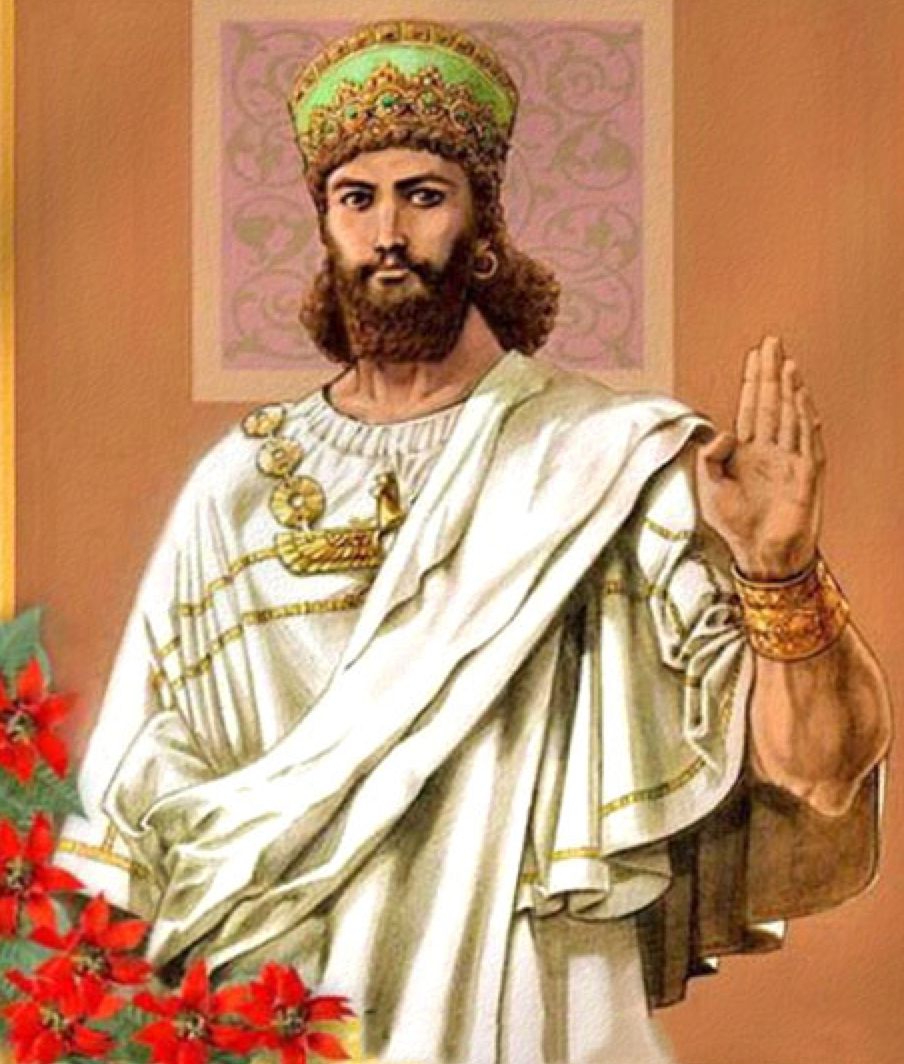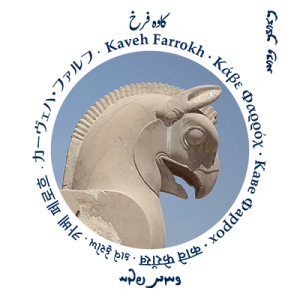The article below on Cyrus the Great in Forbes Magazine on April 19, 2012 was written by Ryan Holiday.
 Ryan Holiday is the author of Trust Me, I’m Lying: Confessions of a Media Manipulator (Penguin/Portfolio). More of his writing can be found at RyanHoliday.net, and you can sign up for monthly reading recommendations through his reading list email.
Ryan Holiday is the author of Trust Me, I’m Lying: Confessions of a Media Manipulator (Penguin/Portfolio). More of his writing can be found at RyanHoliday.net, and you can sign up for monthly reading recommendations through his reading list email.
===========================
Forget 1-800-CEO Read. The greatest book on business and leadership was written in the 4th century BC by a Greek about a Persian King. Yeah, that’s right.
Behold: Cyrus the Great, the man that historians call “the most amiable of conquerors,” and the first king to found “his empire on generosity” instead of violence and tyranny. Consider Cyrus the antithesis to Machiavelli’s ideal Prince. The author, himself the opposite of Machiavelli, was Xenophon, a student of Socrates.
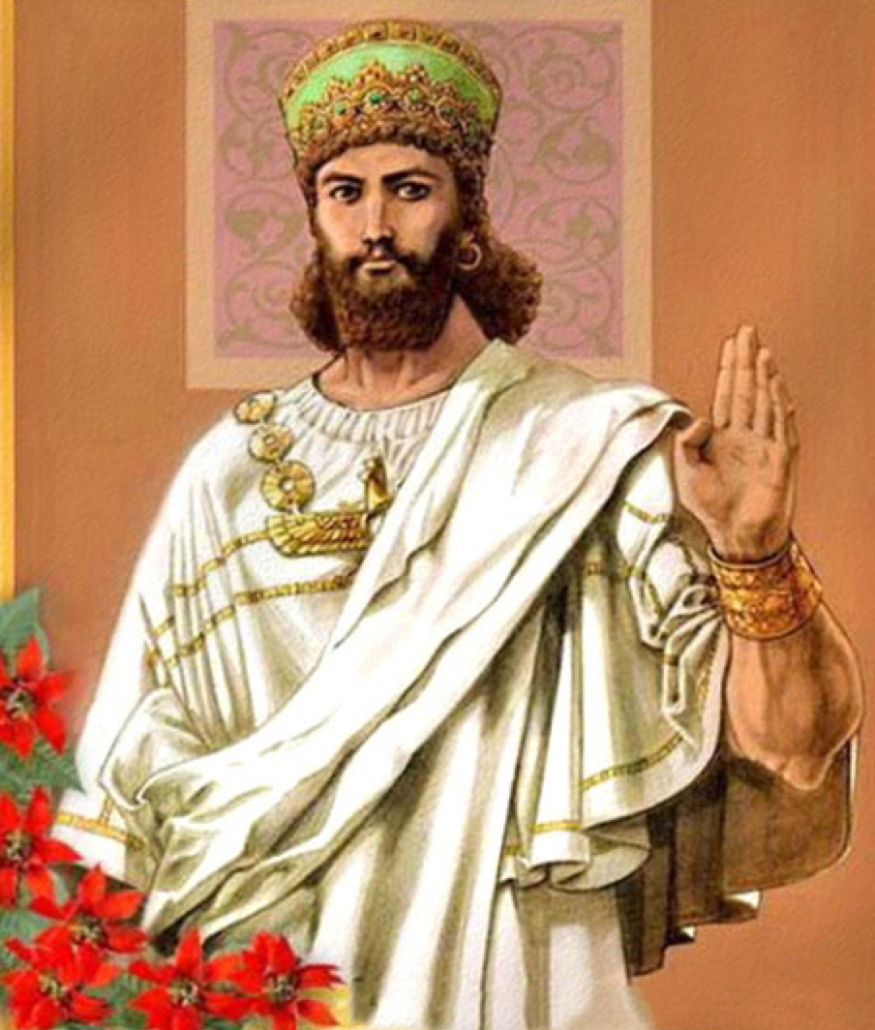 A depiction of Cyrus the Great (Source: Persepolis.nu).
A depiction of Cyrus the Great (Source: Persepolis.nu).
The book is a veritable classic in the art of leadership, execution, and responsibility. Adapted from Larry Hendrick’s excellent translation, here are nine lessons in leadership from Xenophon’s Cyrus the Great:
Be Self-Reliant
“Never be slow in replenishing your supplies. You’ll always bee on better terms with your allies if you can secure your own provisions…Give them all they need and your troops will follow you to the end of the earth.”
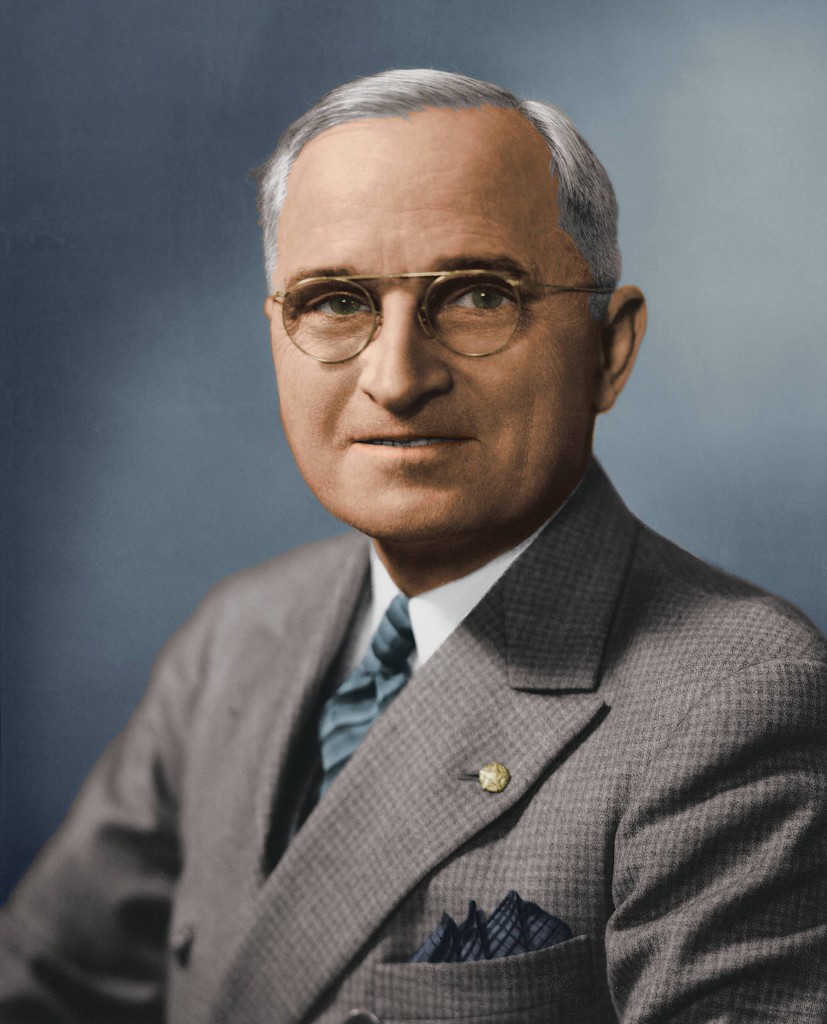 Harry S. Truman (1884-1972) who was President of the United States in 1945-1953. Not only did he acknowledge the legacy of Cyrus the Great in liberating the Jews from their Babylonian captivity, he also stood up against Soviet dictator Joseph Stalin, who tried to absorb Iran’s Azarbaijan province into the Soviet Union. For more Click here…
Harry S. Truman (1884-1972) who was President of the United States in 1945-1953. Not only did he acknowledge the legacy of Cyrus the Great in liberating the Jews from their Babylonian captivity, he also stood up against Soviet dictator Joseph Stalin, who tried to absorb Iran’s Azarbaijan province into the Soviet Union. For more Click here…
Be Generous
“Success always calls for greater generosity–though most people, lost in the darkness of their own egos, treat it as an occasion for greater greed. Collecting boot Be Brief “Brevity is the soul of command. Too much talking suggests desperation on the part of the leader. Speak shortly, decisively and to the point–and couch your desires in such natural logic that no one can raise objections. Then move on.” Be a Force for Good “Whenever you can, act as a liberator. Freedom, dignity, wealth–these three together constitute the greatest happiness of humanity. If you bequeath all three to your people, their love for you will never die.” Be in Control After punishing some renegade commanders: “Here again, I would demonstrate the truth that, in my army, discipline always brings rewards.” Be Fun On being fun: “When I became rich, I realized that no kindness between man and man comes more naturally than sharing food and drink, especially food and drink of the ambrosial excellence that I could now provide. Accordingly, I arranged that my table be spread everyday for many invitees, all of whom would dine on the same excellent food as myself. After my guests and I were finished, I would send out any extra food to my absent friends, in token of my esteem.” Be Loyal When asked how he planned to dress for a celebration: “If I can only do well by my friends, I’ll look glorious enough in whatever clothes I wear.” Be an Example On setting an example: “In my experience, men who respond to good fortune with modesty and kindness are harder to find than those who face adversity with courage.” Be Courteous and Kind “There is a deep–and usually frustrated–desire in the heart of everyone to act with benevolence rather than selfishness, and one fine instance of generosity can inspire dozens more. Thus I established a stately court where all my friends showed respect to each other and cultivated courtesy until it bloomed into perfect harmony.” There’s a reason Cyrus found students and admirers in his own time as well as the ages that followed. From Thomas Jefferson and Benjamin Franklin to Julius Caesar and Alexander (and yes, even Machiavelli) great men have read his inspiring example and put it to use in the pursuit of their own endeavors. That isn’t bad company. The West Wall in Jerusalem. After his conquest of Babylon, Cyrus allowed the Jewish captives to return to Israel and rebuild the Hebrew temple. It is believed that approximately 40,000 did permanently return to Israel.
The West Wall in Jerusalem. After his conquest of Babylon, Cyrus allowed the Jewish captives to return to Israel and rebuild the Hebrew temple. It is believed that approximately 40,000 did permanently return to Israel.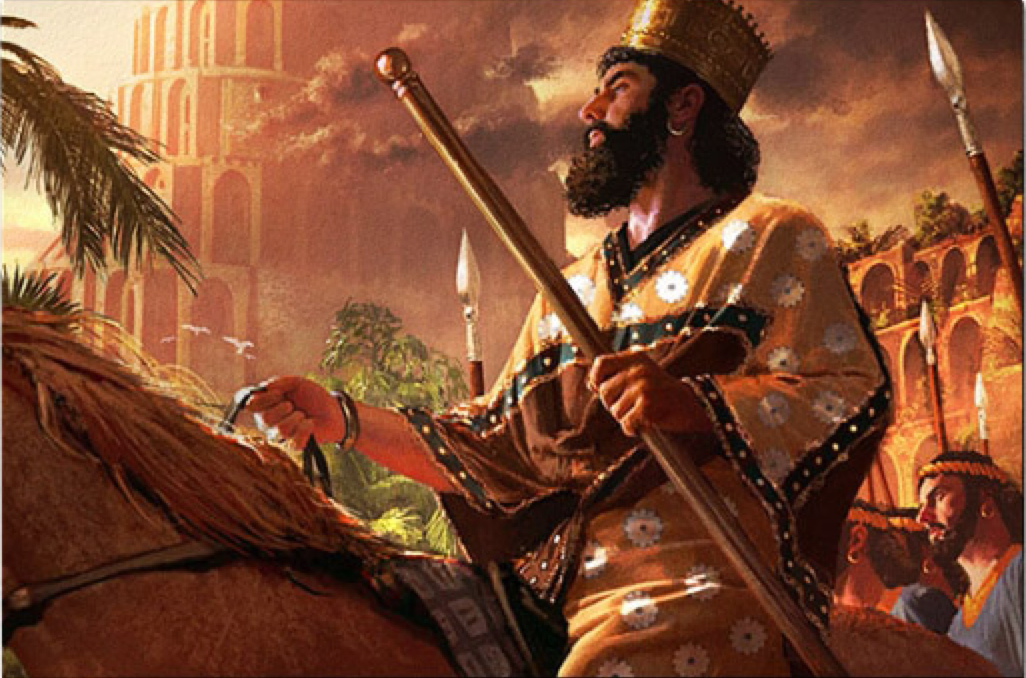 A depiction of Cyrus the Great in Babylon (Source: Persepolis.nu).
A depiction of Cyrus the Great in Babylon (Source: Persepolis.nu).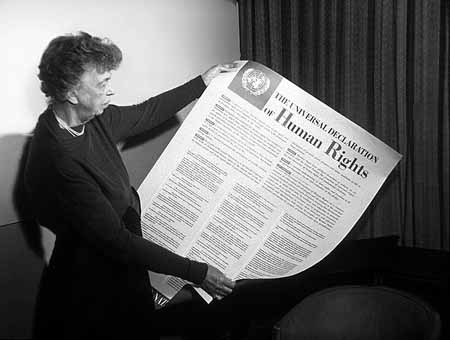 As noted by the United Nations Universal Declaration of Human Rights: “Disregard and contempt for Human Rights have resulted in barbarous acts which have outraged the conscience of mankind, and the advent of a world in which human beings shall enjoy freedom of speech and belief and freedom from fear and want has been proclaimed as the highest aspiration of the common people… All human beings are born free and equal in dignity and rights.” (UDHR-Picture Source: Angelina Perri Birney).
As noted by the United Nations Universal Declaration of Human Rights: “Disregard and contempt for Human Rights have resulted in barbarous acts which have outraged the conscience of mankind, and the advent of a world in which human beings shall enjoy freedom of speech and belief and freedom from fear and want has been proclaimed as the highest aspiration of the common people… All human beings are born free and equal in dignity and rights.” (UDHR-Picture Source: Angelina Perri Birney). The tomb of Esther and Mordechai in Hamedan, northwest Iran. External view (left) and the interior of the tomb (right).
The tomb of Esther and Mordechai in Hamedan, northwest Iran. External view (left) and the interior of the tomb (right). The tomb of Daniel in Khuzestan in southwest Iran. The main structure (note cone-like dome) as it stands today (left) and Iranian pilgrims paying homage within the tomb of Daniel.
The tomb of Daniel in Khuzestan in southwest Iran. The main structure (note cone-like dome) as it stands today (left) and Iranian pilgrims paying homage within the tomb of Daniel.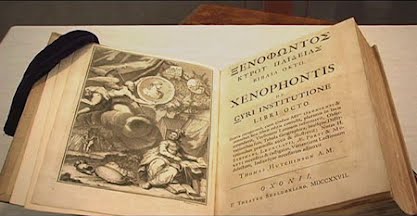 Thomas Jefferson’s copy of the Cyropaedia (Picture Source: Angelina Perri Birney). Like many of the founding fathers and those who wrote the US Constitution, President Jefferson regularly consulted the Cyropedia – an encyclopedia written by the ancient Greeks about Cyrus the Great. The two personal copies of Thomas Jefferson’s Cyropaedia are in the US Library of Congress in Washington DC. Thomas Jefferson’s initials “TJ” are seen clearly engraved at the bottom of each page.
Thomas Jefferson’s copy of the Cyropaedia (Picture Source: Angelina Perri Birney). Like many of the founding fathers and those who wrote the US Constitution, President Jefferson regularly consulted the Cyropedia – an encyclopedia written by the ancient Greeks about Cyrus the Great. The two personal copies of Thomas Jefferson’s Cyropaedia are in the US Library of Congress in Washington DC. Thomas Jefferson’s initials “TJ” are seen clearly engraved at the bottom of each page.

